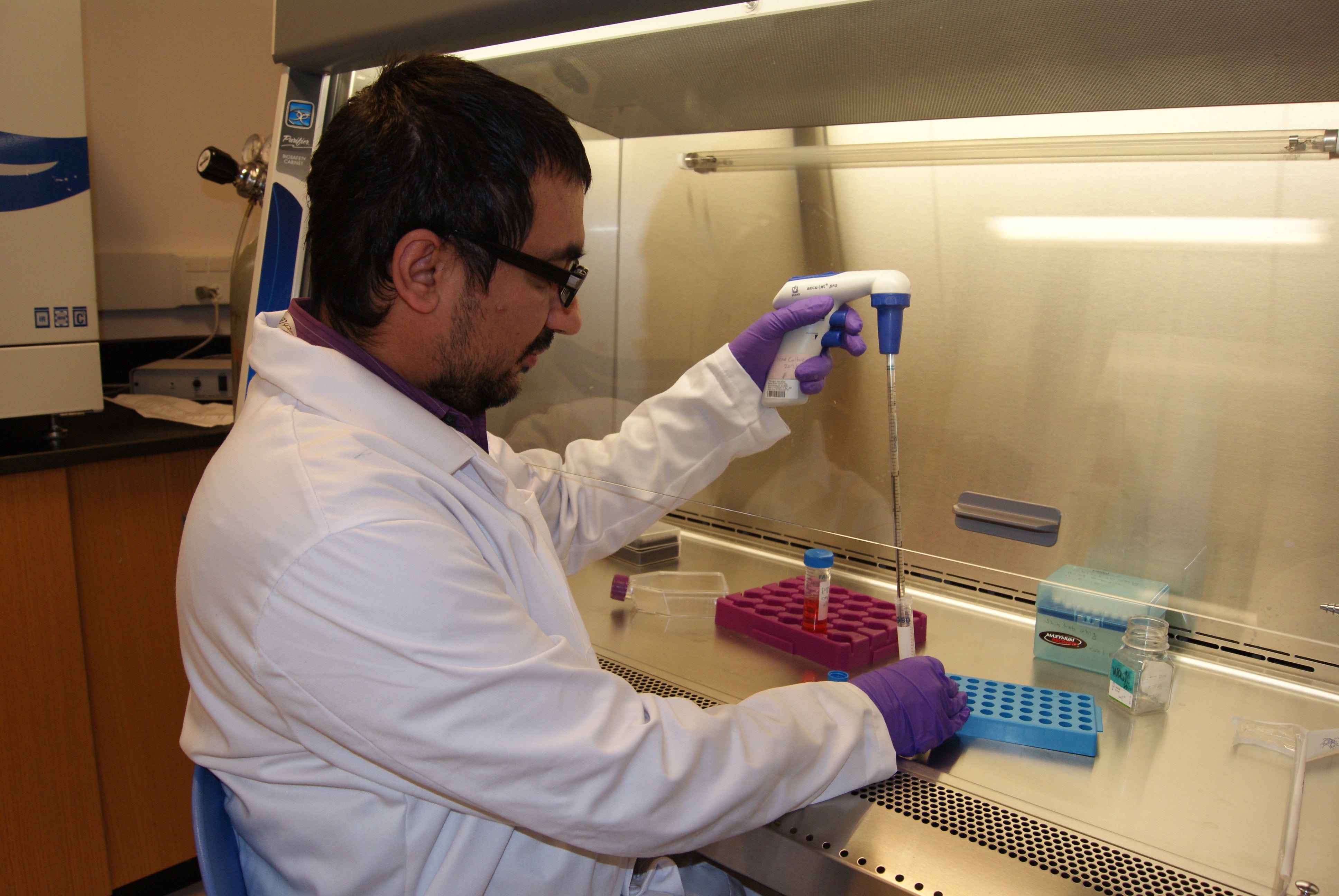
Student Omid Mohammad Mousa works on a cell culture in Xinzhu (Shin) Pu’s lab.
During space flight, astronauts experience microgravity and weightlessness. This causes a loss of bone mass over time, limiting the potential for spaceflights of long duration. Now thanks to a new one-year, $45,000 grant, Xinzhu (Shin) Pu, an assistant research professor and the director of the Mass Spectrometry Core Facility at Boise State’s Biomolecular Research Center, will collaborate with NASA to look for solutions to this problem.
The NASA-sponsored grant is managed by the University of Idaho and will support the research. It will take place at Boise State. Three undergraduate students – Elena Paz Muñoz, Omid Mohammad Mousa and Hunter Underwood – will work with Pu on the project.
Pu’s team will study autophagy, the process by which cells degrade and their components get recycled.
“I want to see, first, if autophagy is involved in the differentiation of stem cells into osteoblasts (the cells that make bone),” said Pu.
The researchers then will study how microgravity affects autophagy, and whether manipulating autophagy levels can encourage stem cells to become bone-generating osteoblasts. If successful, this could become one solution for the loss of bone mass in space.
BY: ANNA WEBB PUBLISHED 10:13 AM / DECEMBER 3, 2018